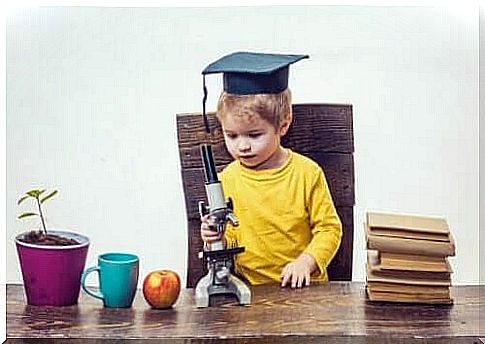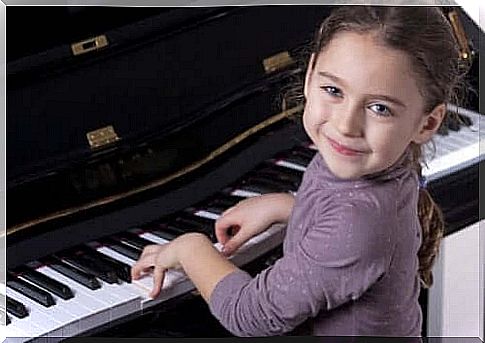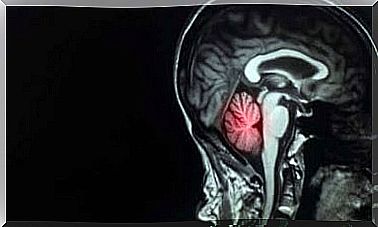How Do You Recognize A Gifted Child?

A gifted child understands and processes reality differently. Unfortunately, their high intellectual capacities can lead to them being misunderstood by the world around them.
Some people may think that a child with good school performance or a child who is able to acquire knowledge about multiple and diverse subjects early in life is a gifted child. However, this is not always the case.
Sometimes the skills of gifted children also include talents that need a good education so that they can reach their full potential for their own benefit and that of society.
However, it is also important that they are happy children. Parents play an important role in recognizing whether they have a gifted child.
What does it mean to be a gifted child?
When it comes to high intellectual abilities, it is becoming more and more common to call children “gifted.” This concept includes:
- certain skills
- specific talents
- intellectual precocity
However, to simplify the concept and make it more understandable, it is often stated that a gifted child has an IQ of 130 or more.
Being a gifted child means that the child has superior intelligence. A child with good academic performance who is highly talented in arts, sports, or learns to speak at a young age is not necessarily gifted.
How do you determine if your child is gifted?

Many parents find it difficult to have a child who is different from the others. No matter what you try, it is challenging to understand that a child is not responding or behaving according to the pattern of average children their age.
A gifted child can also have a very difficult childhood, because they have much more information and stimuli to process than they can handle. The world that surrounds them may seem incomprehensible and even hostile to their abilities.
Parents play a key role in the development and happiness of a child with talent. To do this, it is possible to discover some important characteristics of gifted children early in the home.
Intellectual precocity
A gifted child reaches early intellectual or psychomotor milestones. As babies, they can be demanding at times as they can easily become overstimulated.
They can lift their heads within the first month of life, make two different sounds at the age of 45 days, or even say their first words before the age of one. Also, they can speak before the age of two or write for the rest of their peers.
These children have a precise vocabulary that is rich and very broad for their age. They often have wonderful short- and long-term memories. They learn very quickly and they are curious to learn more.
Emotional and sensory hypersensitivity
A gifted child is very emotionally and sensory sensitive. That way, their emotional intensity can confuse their parents, as they don’t know how to understand their excessive emotions in their responses.
They can be children with low frustration tolerance, who often explode through huge tantrums. These children can even react very strongly when watching a sad or scary movie.
Many gifted children have a high and intense ability to empathize with other beings. It is not uncommon for them to suffer from depression and anxiety.
Unfortunately, little is still known about their sensory hypersensitivity and it is not really understood. They may suffer from:
- the label of their clothing
- loud noises
- bright lights
High degree of creativity
A gifted child is often very creative, because it sees reality differently. They are very imaginative. Because their sensory perception is greater, they can come up with many solutions when it comes to dealing with problems.
These kinds of children can question authority and rules if they are not properly explained and if they are not meaningful to them.
Gifted children are very adept at coming up with a solution, but even more so at asking questions of their parents who are having trouble answering these questions. At a very young age, they may worry about existential issues such as:
- life
- dead
- the existence of God
- love
They usually enjoy cognitive games such as puzzles or jigsaw puzzles. They can also opt for games that involve increasingly complex challenges.
Psychomotor hypersensitivity
Gifted children can be constantly on the move. They have a surplus of energy that is difficult to exhaust. They are enthusiastic and must be physically or cognitively active.
It’s common for them to be mistakenly diagnosed with Attention Deficit Hyperactivity Disorder (ADHD) because their boredom prompts them to constantly move their excess energy.
However, they certainly do not have attention problems. On the contrary, they have a high ability to concentrate when performing a task of their interest. On the other hand, they can be very easily distracted if they are not interested.
Evolutionary Dyssynchrony

This term is used by psychologists to describe uneven development. Children of high intelligence may worry about existential matters and, in turn, may react with a huge tantrum over the loss of a toy.
There are also times when gifted children want to do things that require the use of their thoughts and imagination. However, they cannot do this due to their age and motor skills.
For example, you may have a child who has intellectual development that does not match their development at other levels, such as their emotional or motor skills. This can cause great frustration.
How do you raise a gifted child?
The education system is not always able to meet the demands of these children, which can even be seen as a burden or problem. This can lead to disappointment, both on a personal and academic level.
Raising a gifted child is not easy as they can have complex temperaments. They are:
- easily distracted
- self-critical
- perfectionist
- competitive
In addition, they have a great sense of independence. Therefore, their family and school should not be too rigid and open to encourage their development.
To find out if your child is gifted, you need to have a comprehensive assessment performed by an expert. This investigation must contain several components, including:
- intellectual capacity (IQ)
- creativity
- life history
- emotional state
In addition to the outcome of the evaluation, you should value and educate your child considering the enormous potential that a gifted child has. It’s far from a problem. It’s a blessing.









